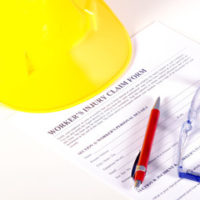Homeowner Liability to Workers

So far we’ve talked about your recourse against a contractor if you are injured by faulty repair work, but what if the worker is injured on your property and sues you? As a property owner, you owe a duty to provide a reasonably safe premise for those lawfully on your property, but your exact duty differs depending on the law of your state and the legal status of the injured person as an invitee or licensee. To learn more about a homeowner’s liability to their contractors read on from our home repair experts.
Look to your homeowner’s insurance policy first
First of all, their claim is likely covered by your homeowner’s policy, so make sure you have the right amount of coverage (not too much and not too little). Secondly, the scope of your liability can depend on a number of factors, such as whether the worker was an employee of a contractor you hired or an individual you directly hired yourself. If the worker was employed by the contractor, there is a level of separation and likely some protection for you from liability. In this situation the extent of your liability may also depend on the level of control you exercised over the project.
Did you hire a general, or were you the general?
If as the homeowner you were not exercising control over the project but leaving it all up to the company or contractor you hired, your duty likely involves only providing a reasonably safe place to work. This would include warning workers of any nonobvious dangers you know of. So, if you have a dangerously sagging porch, pipes hidden in tall grass, or loose boards on stairs that all present a tripping hazard, you could be liable for an injury caused by one of these conditions. It goes without saying, of course, that you would likely not be liable if the worker was actually hired to fix that condition and therefore should have known about the danger and how to fix it without getting hurt.
On the other hand, if you are one of those homeowners that can’t sit idly by and let the professionals do their work – if you were closely monitoring the project or even acting as the general contractor – your liability may be greater. For instance, if you dictated the way the job would be performed or the materials or equipment that would be used, and a worker had an accident due to following your erroneous instructions, it would be hard to avoid liability to the worker in that situation. The best steps to take after an injury on your property are to call for medical help, and call for a lawyer too.



